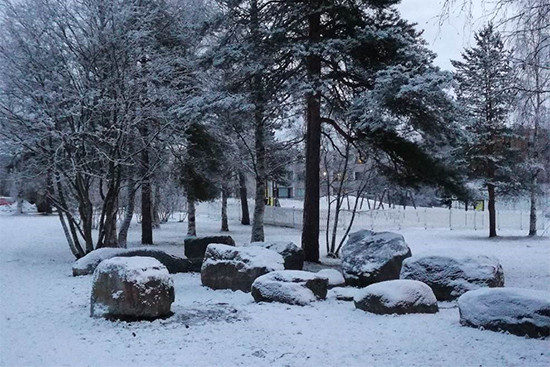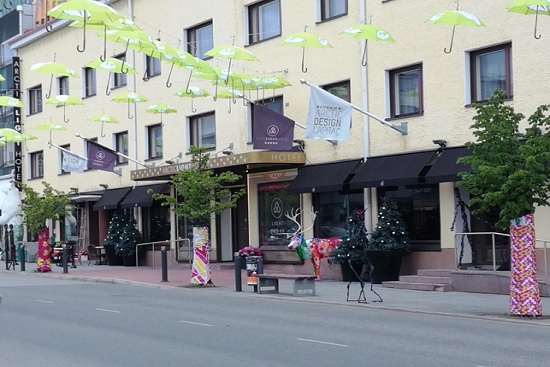When we refer to Rovaniemi as an Arctic city, we tend to forget two essential things: in Rovaniemi, the link between arcticity and the history and locality is weak, and the city does not take advantage of the Arctic urban nature as part of its identity in the best possible way.
This is the opinion of Arctic Centre Sustainable Research Group pioneer, Research Professor Monica Tennberg.
– Since the 1990’s, Rovaniemi has been constructing its Arctic identity. But what does it mean and where does it show? What does urban arcticity mean, and how is it reflectedin everyday life? These are the most important research questions in my current work, Tennberg says.
A handy parallel to Rovaniemi is Tromsø in Norway, considered the Arctic capital of our western neighbour. The differences and similarities between these two cities that are constructing almost identical Arctic identities are also part of Tennberg’s research. What is being Arctic like in Tromsø? Does it differ from the way it is in Rovaniemi, or is arcticity similar everywhere?
– Arcticity is an evolving concept, and as such an interesting research subject. I am increasingly moving away from state-centred policies towards Arctic everyday life and urban arcticity. This means researching everyday things and phenomena in the Arctic, such as walking in studded winter boots.

Photo: Monica Tennberg
With state-centred policies, Tennberg is referring to the previous focus in her career as a researcher. This daughter of the ”Punavuori bubble” moved to Lapland ”temporarily” in 1992 to write her licentiate and doctoral theses, and among other things she has researched adaptation to climate change from the point of view of governance. Since 2004, Tennberg has worked as research professor in the Arctic Centre at the University of Lapland where she leads the Sustainable Development Research Group.
– Coming to work at the Arctic Centre was great. We have an active team of 12 researchers. Everyone deals with their own templates, yet is also a part of a larger community. Sometimes I forget how great a working environment the Arctic Centre really is!
Research into urban Arctic everyday life is a unique research subject. Little research has been done on it, and there is a lot left to study. Getting to the core and finding answers requires particular methods of research and material collection. In case of Tennberg, you could describe them with terms that fit her research: urban and everyday. This means that the approach is very pragmatic.
– My material is really multi-facetted. I have collected material while walking, by photographing and by interviewing experts. I have carefully studied the history of the Arktikum Park, and for that, I got a lot of help in the Regional Library of Lapland. Almost no one else has studied the subject, Tennberg says.
The illustrative materials Tennberg has collected herself, as well as social media, also complement the research. For example, Facebook group “used-to-be young in Rovaniemi” has an important role. In the group, people from Lapland who have been living Arctic everyday life share their cherished memories and black and white photographs that speak their own language about the history of Rovaniemi and about the way the city has grown into a Arctic city where Arctic research flourishes.

Photo: Monica Tennberg
Monica Tennberg
- Doctor of Social Sciences
- Research professor, Sustainable Development Research Group at the Arctic Centre
- Research subjects political nature of the Arctic, climate change adaptation management, uran Arctic and the political economy of Arctic everyday life
- Motto: Arcticity is constructed of manifold visions, of fragmented structures composed of people, resources and regions that are united by many but often unequal interactions, networks and partnerships.
- Monica Tennberg’s publications and projects can be accesses through the LaCRIS research system
Monica Tennberg will present her research on Arctic urban life in Rovaniemi at the Arctic Café on 29 November 2018 at 15 hours. The language of the discussion is Finnish. Welcome to the event at the Arktikum library, free entry!
Interview and main photo: Maria Paldanius